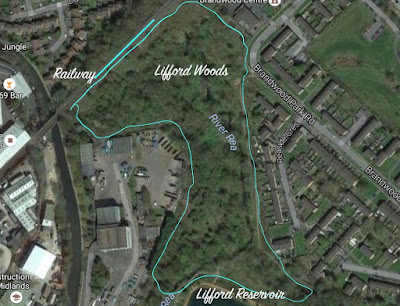Natural Capital
'Natural Capital' - the capitalisation of nature
However one approaches the issues of environmental impact and globalisation, there is no escaping the economic fear factor when considering climate change and environmental degradation, and hence a new term has been presented to CEO's, economists and other finance leaders throughout the business networks; 'Natural Capital', a shrewd and perhaps necessary term, to get the attention of those involved in world wide business institutions and financial entities, where bottom line and increased profits is perhaps the only concern for many.
To most of us 'on the ground', we welcome any discussion that raises and highlights our concerns regarding environmental plight, and whilst our concerns are perhaps more 'down to earth' = counting birds, identifying wild flowers, bug hunting etc. we look elsewhere, often via media coverage, to assess the health of our environment. And, perhaps somewhat cynically, we know things are bad when corporate capitalists are in debate about the state of the planet - spending time away from the boardroom and their preferred occupation of accumulating wealth and maximising financial profit; but let us not be fooled into thinking they have suddenly become environmentally 'aware' and have developed a new found love for nature, wildlife and planetary/biological science, they are concerned and talking because they wish to continue accumulating wealth and maximising profits.
It would be refreshing to hear the term 'wealth' related to the natural world more often, and perhaps some economists and financiers will make the connection between accumulation and nature; for me the term 'Natural Capital' is therefore a welcome one, but there again so was the concept of 'sustainability', or sustainable practices, a few years back - global capitalisation seems to be a runaway train gathering speed- and it will inevitabley crash.......
The link below leads to details of a recent World Forum on Natural Capital in Edinburgh and the following quote is at the forefront - “…there are both serious risks to business, as well as significant opportunities, associated with biodiversity loss and ecosystem degradation. There is also a need for business to quantify and value its impacts on biodiversity and ecosystems, in order to manage these risks and opportunities and enable a better future for all”
It would be refreshing to hear the term 'wealth' related to the natural world more often, and perhaps some economists and financiers will make the connection between accumulation and nature; for me the term 'Natural Capital' is therefore a welcome one, but there again so was the concept of 'sustainability', or sustainable practices, a few years back - global capitalisation seems to be a runaway train gathering speed- and it will inevitabley crash.......
The link below leads to details of a recent World Forum on Natural Capital in Edinburgh and the following quote is at the forefront - “…there are both serious risks to business, as well as significant opportunities, associated with biodiversity loss and ecosystem degradation. There is also a need for business to quantify and value its impacts on biodiversity and ecosystems, in order to manage these risks and opportunities and enable a better future for all”
Pavan Sukhdev
Chair, TEEB Advisory Board
UN Goodwill Ambassador
Chair, TEEB Advisory Board
UN Goodwill Ambassador
 |
| Veteran Tree characteristics |
It is from this Natural Capital that humans derive a wide range of services, often called ecosystem services, which make human life possible.
The most obvious ecosystem services include the food we eat, the water we drink and the plant materials we use for fuel, building materials and medicines. There are also many less visible ecosystem services such as the climate regulation and natural flood defences provided by forests, the billions of tonnes of carbon stored by peatlands, or the pollination of crops by insects. Even less visible are cultural ecosystem services such as the inspiration we take from wildlife and the natural environment"
http://naturalcapitalforum.com/about



Comments
Post a Comment